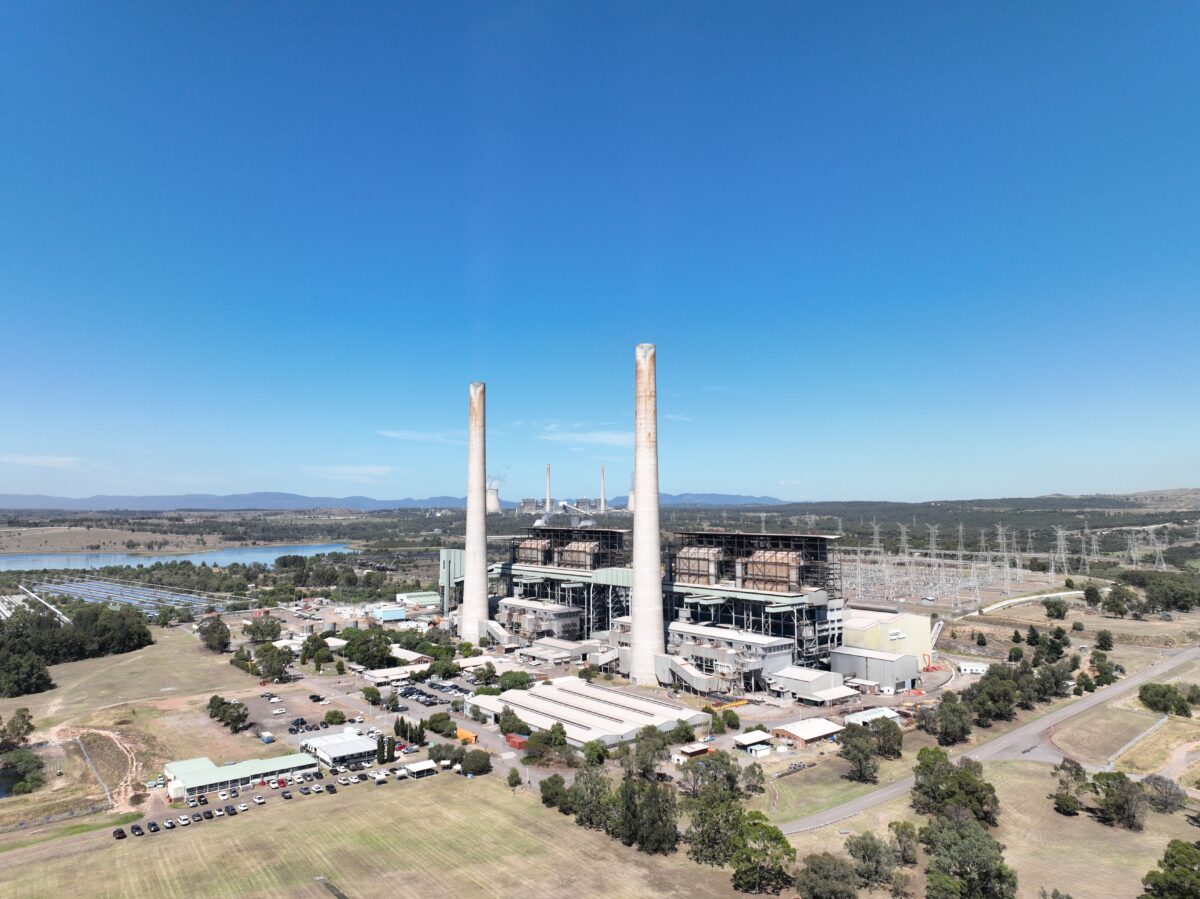AGL Energy is looking to add commercial-scale solar panel recycling to the renewables-focused plans it is developing for the site of its shuttered Liddell coal-fired power station – the same site in the New South Wales Hunter region that Peter Dutton proposes appropriating for nuclear.
AGL and emerging PV recycling outfit Elecsome said on Tuesday they have signed a memorandum of understanding (MoU) to develop a feasibility study for a facility with the potential to upcycle half a million solar panels a year at AGL’s Hunter Energy Hub.
A second stage would then focus on the extraction of high value materials, including silicon wafer for re-use in PV and battery grade silicon, electric conductors for re-use in electrical appliances, and the extraction and re-use of silver, copper and aluminium.
The deal proposes to add another green layer to AGL’s Hunter Energy Hub, where it is developing one of Australia’s biggest grid-forming batteries, and where it is also exploring the potential for solar manufacturing with local innovator SunDrive and battery recycling with Renewable Metals.
The feasibility study with Elecsome will determine the engineering and infrastructure requirements as well as the key environmental and regulatory approvals required for the development, construction, and operation of the panel recycling facility.
If the study proves up, the recycling plant would be Elecsome’s first commercial-scale solar panel recycling facility in NSW with the potential to upcycle up to 500,000 residential and grid-scale solar panels a year.
The two companies will also assess the feasibility of a solar cable manufacturing plant at the site, which could produce up to 20,000 km of cable a year for use in residential and commercial solar installations, as well as for large-scale solar farms.
The MoU is a welcome sign that those who are actually in the business of generating and selling energy, and their shareholders, remain focused on the transition to renewable energy the shoring up of the industries needed to support that transition.
Damien Nicks, the boss of AGL which has two sites targeted by the Coalition’s skeletal nuclear plans – Liddell and Loy Yang – has repeatedly said nuclear forms no part of the gentailer’s plans, and that it wants to create new clean energy and industrial hubs.
“As the owner of these sites, nuclear energy is not a part of these plans,” he said in March as part of a statement that AGL reissued last week.
“There is no viable schedule for the regulation or development of nuclear energy in Australia, and the cost, build time and public opinion are all prohibitive,” Nicks said.
“Policy certainty is important for companies like AGL and ongoing debate on the matter runs the risk of unnecessarily complicating the long-term investment decisions necessary for the energy transition.”
In a statement this week, AGL’s general manager of energy hubs, Travis Hughes, said AGL’s vision for the Hunter Energy Hub is starting to take shape.
“Since the closure of Liddell Power Station one year ago, we have signed MoUs that could bring battery recycling with Renewable Metals and solar panel manufacturing with SunDrive to the Hunter Energy Hub,” he said.
“Today we add solar panel recycling and solar cable manufacturing to that list of partners.”
For Elecsome, the MoU with AGL follows the successful commissioning of its first solar upcycling facility in Victoria, in association with the federal department of industry, The University of Melbourne and RMIT.
The start-up, whose patented technology transforms used solar panels into new products used in the construction and manufacturing industries, was one of 10 start-ups to take part in EnergyLab’s 2023 Climate Solutions Accelerator program.
One of its main products, SolarCrete – a pre-mixed concrete made using glass recovered from used solar panels – will form part of the feasibility study at the Hunter site, the companies say.
Elecsome managing director, Neeraj Das, describes resource recovery and upcycling of solar panels as Australia’s “next-gen mining” opportunity.
“At the same time, it’s our responsibility to have an effective solution for solar waste in place for future generations,” he said back when Elecsome was working with EnergyLab.
With AGL, Elecsome will also look into the feasibility of extracting the materials used in a solar panel for re-use in green energy manufacturing at the Hunter Hub.
The companies say this could include recovering silicon wafer for re-use in PV and battery grade silicon, electric conductors for re-use in electrical appliances, silver and copper extracted for other industries, and the aluminium frames repurposed for cans and new solar PV frames.
“If successful, the establishment of a solar panel recycling plant and solar cable manufacturing plant with Elecsome will mean we are hosting several parts of the solar energy value chain with both manufacturing and recycling of grid-scale and residential solar panels at the Hunter Energy Hub,” AGL’s Hughes says.
“These partnerships have the potential to make a significant contribution to the economy of the Upper Hunter by creating new jobs in the renewable energy sector.”

